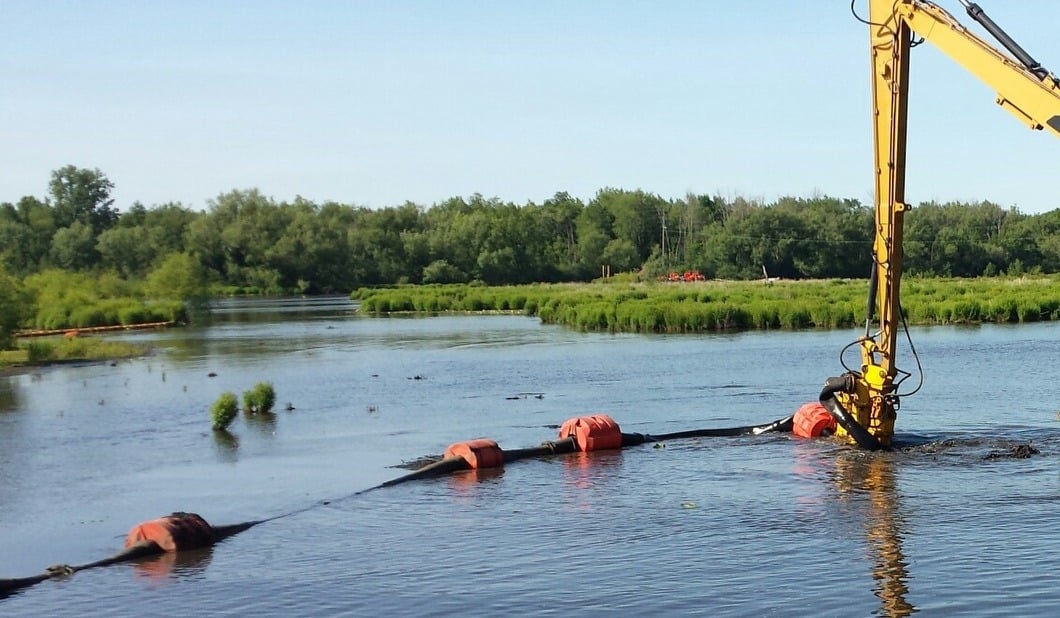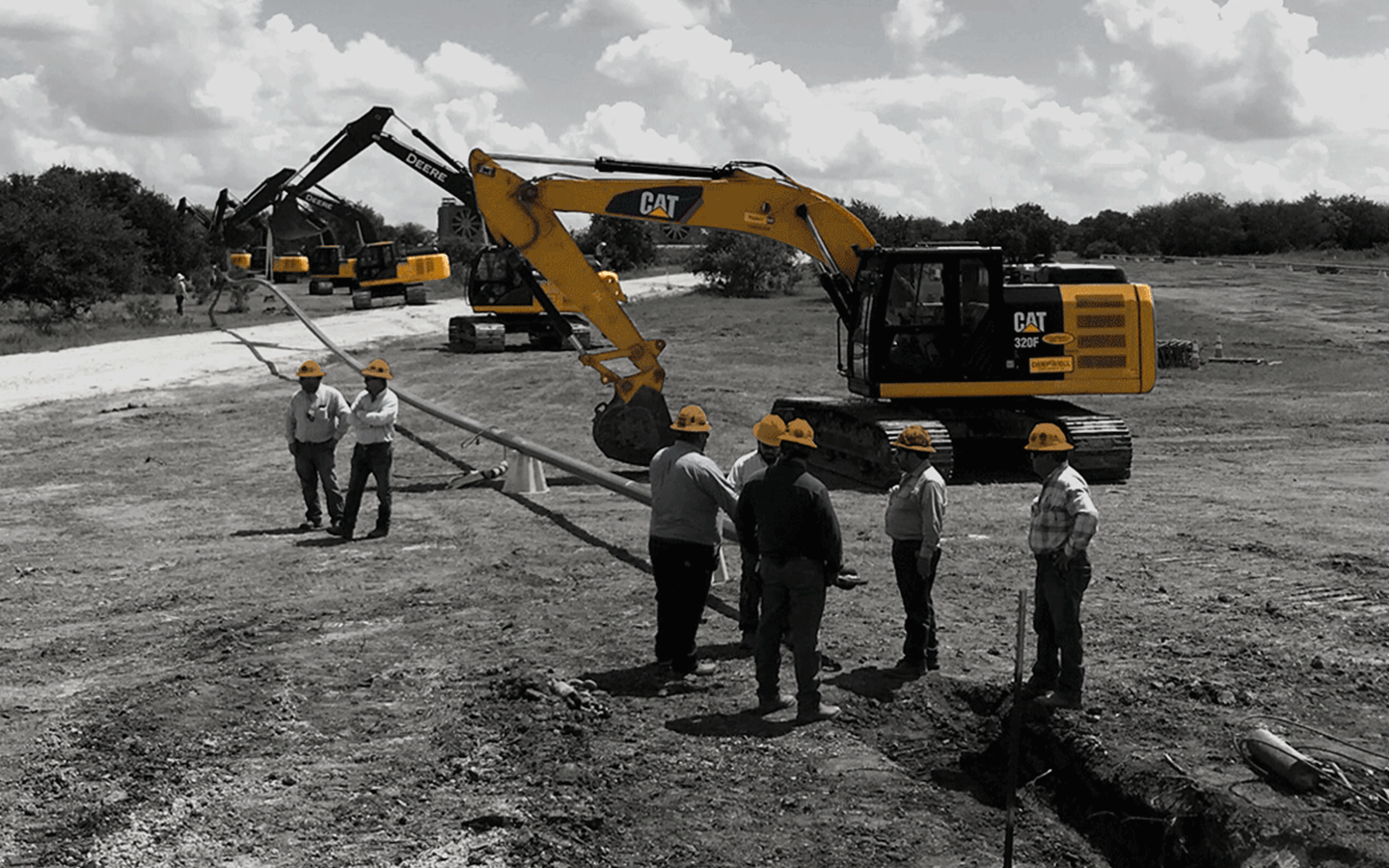A Comprehensive Guide to the Various Kinds of Oil Field Equipment and Pipeline Equipment Available
The oil and gas market counts greatly on customized devices for reliable removal and transport. Various types of equipment, from drilling rigs to storage tanks, play essential roles in this intricate procedure. Each piece of devices serves distinctive functions that contribute to total operational success. Recognizing these elements is essential for any individual entailed in the market. As the market advances, so as well do the technologies that support it. What innovations are on the perspective?

Drilling Rigs: The Foundation of Oil Exploration
Drilling rigs work as the essential machinery in the domain of oil exploration, enabling business to accessibility hydrocarbon reserves hidden deep below the Earth's surface. These rigs come in numerous kinds, including land rigs, offshore rigs, and mobile systems, each created to run in details settings. Geared up with sophisticated modern technology, piercing rigs can pass through geological formations with accuracy, making certain efficient resource removal. The architectural integrity and operational capacities of these rigs are crucial, as they need to withstand severe conditions and substantial stress. The choice of a boring gear influences the total task expense and timeline, making it a crucial factor to consider for oil companies seeking to enhance their exploration efforts and make best use of productivity in their operations.
Pumps: Vital for Liquid Activity
In the oil extraction process, the role of pumps is substantial, helping with the motion of liquids throughout different stages of manufacturing. Pumps are essential for carrying unrefined oil, water, and various other liquids from below ground reservoirs to the surface and after that with pipelines to refineries. They can be found in various kinds, including centrifugal, positive variation, and completely submersible pumps, each serving certain objectives based upon the fluid characteristics and operational demands. Centrifugal pumps are frequently utilized for their performance in high-flow applications, while favorable displacement pumps master handling viscous liquids. The option of pump influences total efficiency, operational safety and security, and upkeep costs. Correct choice and upkeep of pumps are crucial for enhancing manufacturing and decreasing downtime in oil field operations.
Valves: Controlling Circulation and Pressure

Shutoffs play a crucial duty in managing the flow and pressure of liquids within oil fields and pipelines. Different sorts of valves offer distinct applications, each developed to fulfill certain functions essential for efficient operation - Superior Oilfield Rentals Texas. Comprehending the characteristics and usages of these valves is important for optimizing system performance and safety and security
Kinds of Valves
Essential parts in oil field procedures, shutoffs play an essential function in regulating the flow and pressure of liquids within pipelines and tools. Various sorts of valves are utilized to fulfill the diverse needs of oil and gas production. Typical kinds include gateway valves, which provide a straight-line circulation and minimal stress decline; world shutoffs, recognized for their throttling capacities; and round valves, acknowledged for their quick on/off control. In addition, check valves avoid heartburn, while butterfly shutoffs use a light-weight service for controling circulation. Each shutoff type is designed with particular materials and configurations to withstand the extreme conditions usually located in oil fields, ensuring dependability and efficiency in operations. Understanding these types is important for reliable system monitoring.
Valve Applications and Functions
While various types of valves offer unique purposes, their key applications focus on managing circulation and pressure within oil and gas systems. Shutoffs such as gate, world, and ball shutoffs manage fluid movement, ensuring peak performance and safety and security. Gateway valves are typically used for on/off control, supplying marginal circulation resistance. Globe shutoffs, on the various other hand, deal specific circulation guideline, making them appropriate for throttling applications. Ball valves are favored for their quick procedure and limited sealing capabilities. On top of that, pressure relief valves are essential for stopping system overpressure, protecting devices integrity. Overall, the proper option and application of valves improve functional efficiency, ensuring the reliable transportation of oil and gas with pipelines and processing facilities.
Compressors: Enhancing Gas Transport
Compressors play a critical function in the reliable transport of all-natural gas, making sure that it relocates smoothly via pipelines over fars away. These devices boost the stress of all-natural gas, allowing it to get over rubbing and elevation adjustments within the pipeline system. Additionally, compressors facilitate the harmonizing of supply and need, fitting fluctuations in intake and manufacturing prices. Different types of compressors are used ton excavator in the sector, consisting of centrifugal, reciprocating, and rotary screw compressors, each offering distinct advantages based upon the operational demands. Normal upkeep of these compressors is important to maximize performance and minimize downtime, inevitably adding to a reliable gas transportation network. Their critical feature emphasizes the relevance of compressors in the total oil and gas framework.
Storage Tanks: Safe and Effective Liquid Monitoring
Efficient transport of gas depends on numerous support group, one of which is the proper administration of tank. These tanks play a necessary duty in securely having liquids, guaranteeing that functional efficiency is kept while reducing environmental risks. Built from long lasting materials, they are made to hold up against high pressures and destructive components. Properly sized and purposefully situated, storage tanks promote the smooth circulation of gas and various other Visit This Link liquids, stopping traffic jams in supply chains. Routine upkeep and monitoring are crucial to identify leaks or structural concerns, advertising safety and security and compliance with regulatory requirements. Eventually, the reliable management of tank is vital for the general stability and dependability of the oil and gas market's liquid handling systems.
Pipeline Solutions: Infrastructure for Transport
Pipeline systems work as the foundation of the oil and gas market, promoting the reliable transport of hydrocarbons over huge ranges. These systems include different components, including pipes, valves, pumps, and compressors, all meticulously made to guarantee seamless circulation. The products made use of in pipeline construction, typically steel or high-density polyethylene, are picked for sturdiness and resistance to rust. Pipeline networks can extend across land and see water, attaching production sites to refineries and warehouse. Furthermore, advanced innovation makes it possible for real-time monitoring of circulation prices and stress degrees, boosting operational effectiveness. The critical positioning of these pipes lessens environmental influence while optimizing source accessibility, consequently playing a crucial role in meeting power needs internationally.
Safety Equipment: Ensuring Worker and Environmental Protection
The procedure of pipeline systems, while important for energy transport, also presents significant safety and security difficulties for employees and the environment. Security tools plays a substantial function in mitigating these dangers. Individual safety equipment (PPE) such as safety helmets, handwear covers, and non-slip footwear safeguards employees from physical threats. In addition, gas detection systems monitor for leakages, making certain that dangerous materials do not present a hazard to employees or the surrounding environment. Emergency closure systems are imperative for swiftly halting operations throughout a dilemma, protecting against possible catastrophes. Spill containment products, consisting of absorbents and barriers, are basic for decreasing environmental effect. Overall, buying comprehensive safety and security tools is vital for keeping functional integrity and securing both workers and the setting in the oil and gas industry.

Regularly Asked Questions
Just how Do I Select the Right Oil Field Equipment for My Job?
Choosing the best oil area tools includes reviewing project requirements, budget restraints, and operational demands. Take into consideration factors such as devices dependability, compatibility with existing systems, and the distributor's online reputation to guarantee peak performance and safety and security.
What Are the Maintenance Needs for Oil Field Equipment?
Upkeep requirements for oil field equipment include regular inspections, lubrication, and timely repairs. Operators should likewise follow maker standards, display performance metrics, and guarantee compliance with safety and security policies to boost long life and efficiency.

How Can I Guarantee Conformity With Environmental Regulations?
To guarantee compliance with environmental laws, firms should conduct routine audits, carry out best practices, invest in training, keep appropriate paperwork, and stay upgraded on regulation (Superior Oilfield pipeline equipment rentals). Collaboration with environmental companies can additionally boost adherence to laws
What Is the Ordinary Life-span of Pipeline Equipment?
The ordinary lifespan of pipeline tools typically ranges from 20 to half a century, depending upon elements such as worldly high quality, ecological conditions, and upkeep practices. Normal evaluations can significantly affect durability and operational effectiveness.
Exactly how Do I Safely Carry Oil Field Equipment to Remote Locations?
Moving oil area equipment to remote locations calls for mindful preparation, consisting of path evaluation, securing permits, making use of ideal lorries, and making certain security procedures are followed. Proper training and interaction among crews are important for successful transport.